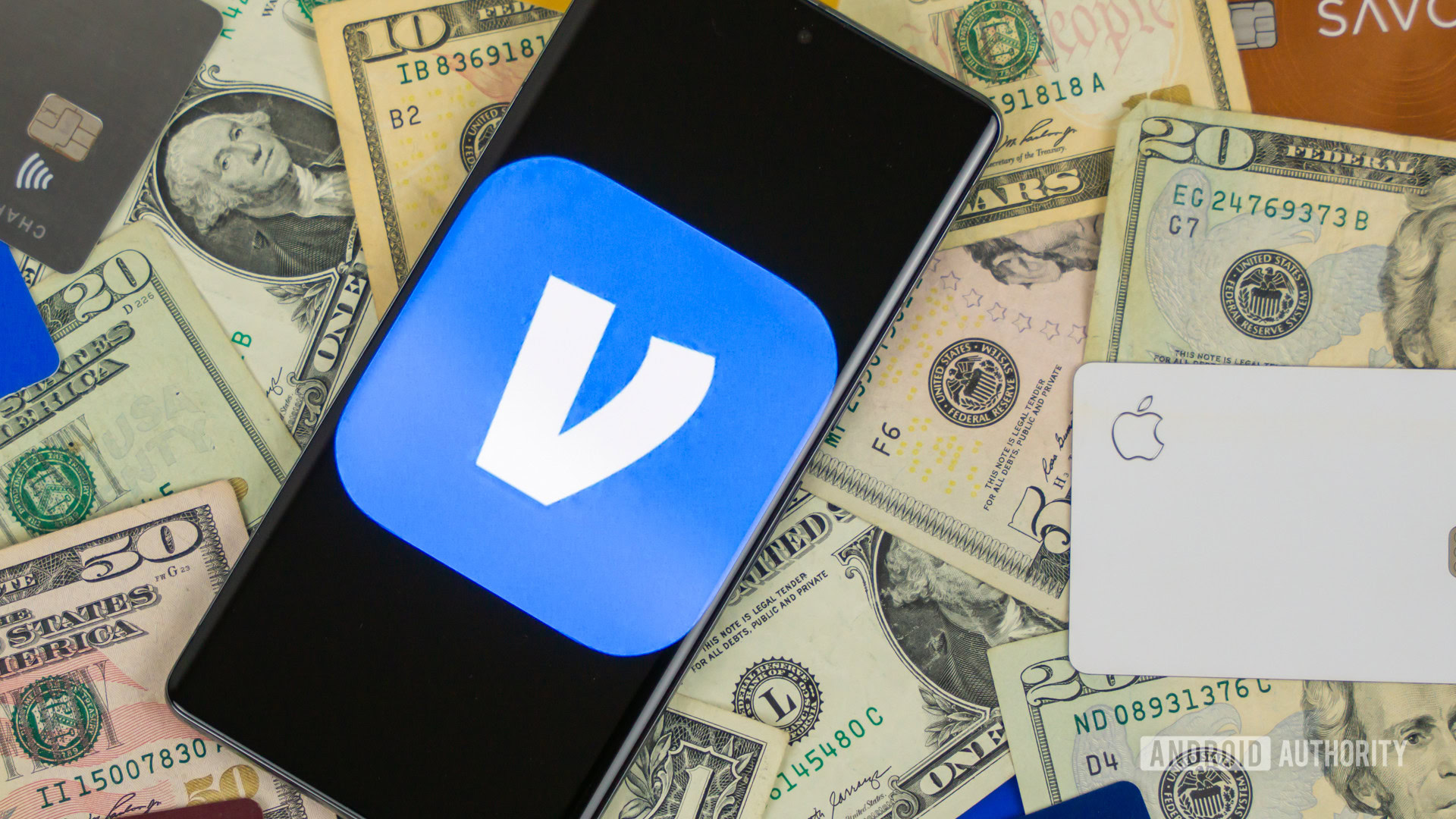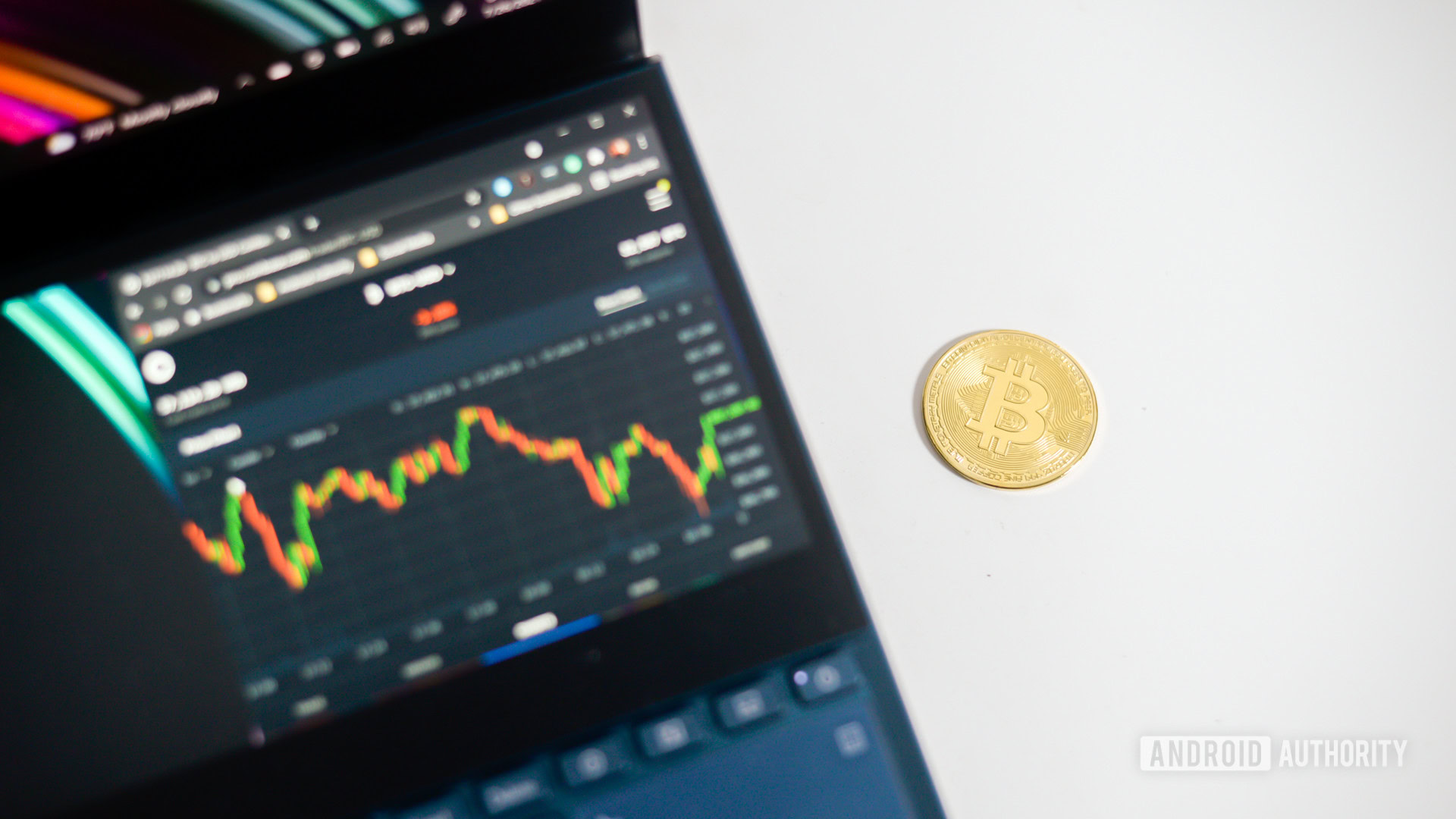Affiliate links on Android Authority may earn us a commission. Learn more.
8 common Venmo scams and how to avoid them
While Venmo is a fact of daily life for a lot of Americans, that’s also what makes the payment app a potentially lucrative target for scammers. Whether you’re new to the app or just worried about staying safe, here’s a guide to some of the more common Venmo scams, and how to protect yourself from them.
JUMP TO KEY SECTIONS
8 common Venmo scams and how to avoid them

1. Fake lotteries and other prizes
In this scheme you’ll be usually be contacted via email or a text message, claiming you’ve won money from Venmo or some other organization. Regardless you’ll be asked to supply info about your Venmo account, and/or tap on a link taking you to a fake login page. If you fall for this you’ll have your account hijacked, and the scammer will probably use it to transfer funds or make purchases.
In reality, no company offers these sorts of giveaways through Venmo, not even Venmo itself. You can also identify a scam by the URLs (web addresses) associated with an email or text — anything legitimate will point you to a page at venmo.com, not a site that happens to have Venmo in its name.
Never share your account info outside of logging into Venmo, or communicating (privately!) with the service’s official social media channels, such as @VenmoSupport on X/Twitter.
2. Calls or texts pretending to be Venmo
This scam can take a variety of forms, but the usual template is that you’ll be contacted by someone claiming they need to you to supply your login info and/or a one-time multi-factor authentication (MFA) code. They’ll explain that it’s needed to verify your account and/or recent transactions, but what they’re really doing is attempting a hijack. A variant of the scam is that instead of asking for login details, they’ll prompt you to “verify” yourself by sending money to another Venmo account.
The real company won’t ask you to share login info outside of the app or its social media channels, let alone make payments. Likewise, it’ll never have support staff ask you for a multi-factor authentication code — you should only input that directly during a login attempt. If you get an MFA request out of the blue, you should change your login credentials immediately.
3. Outside tech support scams
This one involves being tricked into contacting a fake tech support line, most likely masquerading as a major tech firm like Google or Microsoft. Early into your call or chat session, they’ll ask for a Venmo payment — but after they get your cash, they won’t keep up the facade much longer.
To avoid this, always go directly to a company’s website for tech support. Remember also that in most cases, legitimate companies don’t charge extra for phone or chat help, since the good will keeps you buying their primary products.
4. Sales scams
A threat on any payment platform is that someone will try to sell you something, or buy something from you, but welch on their end of the deal. To trick you, scammers may even supply fake screenshots “proving” that they’ve issued a Venmo payment or shipped a product. If you’re selling, they may say that money will automatically be deposited after you share shipping info, but Venmo doesn’t actually work this way. Another possibility is that they’re using a stolen card or bank account, in which case the money may vanish once its real owner reports the fraud.
All you can really do be aware of how this type of scam operates and limit your Venmo transactions to people and businesses you trust, normally ones you’ve encountered in person. There are safer ways of conducting online shopping — eBay at least lets you check a user’s reputation. If you’re going to buy using Venmo, make sure there’s an “Eligible items covered by Purchase Protection” label under a Pay button.
5. Friend and family impersonations
By stealing photos and other public content, a scammer may be able to build enough of an internet profile to convince you they’re a friend or family member. They’ll then drum up an excuse to request money, such as a medical emergency, or else say they’ve “accidentally” sent you cash and need it back. In the latter case, they’re probably using a hijacked credit card or bank account.
You can usually avoid this by checking that a person’s profile matches what you’re familiar with, especially when it comes to spelling and usernames. Scammers also tend to be unusually aggressive, since they don’t have any reason for small talk, and their pretense can collapse pretty quickly. If you’re still in doubt, try asking about a transaction in a phone call, using the contact info you’re used to instead of anything new.
Once you’ve identified a scammer, be sure to block them, then restrict the privacy settings for your friends list and transaction history. Those may be how the scammer figured out who to impersonate.
6. “Accidental” payments from strangers
As with some friend and family scams, a stranger may message you out of nowhere saying they accidentally sent you money but need it back. To turn on a profit, a scammer will use a stolen credit card or bank account for the amount they initially send.
There’s not much more to add here except that you should never trust this sort of request. It’s deliberately difficult to send money to anyone on Venmo by accident. Indeed, you should report any unsolicited transactions immediately.
7. Crypto, “flipping,” and other investment scams

While it’s possible to make an honest fortune through the likes of cryptocurrency or the stock market, anyone promising a large profit after you provide a small investment via Venmo is likely trying to scam you. They’ll take the money and run, or at best get you wrapped up in a pyramid scheme.
Any serious investment opportunity is going to come through a reputable platform and involve more traditional payment methods, unless perhaps you’re paying directly in crypto. Whatever the situation, always do your research on a product and the people offering it, as well as the potential risk. Bitcoin in particular is volatile, so you could be out thousands of dollars or more if the market turns south.
8. Romance/catfishing and prostitution scams
Let’s get this out of the way — whether or not prostitution is legal where you live, you should never accept sex offers from online strangers that want payment via Venmo. It’s almost certainly fraud, exploiting your hormones and loneliness. In a prostitution context, Venmo should only ever be considered in person.
A romance/catfishing scam may be actually be more insidious. This is a long con in which a scammer flirts with you, slowly building up the impression of a relationship without actually meeting in person. Once they gain your trust they’ll manufacture a reason for you to send money, such as rent, a family emergency, or a visa. They could go silent once they have this initial cash, but they might also string you along until you realize what’s happening.
Even intelligent people can sometimes fall for romance scams, but skepticism is your ally here. It’s very unlikely that a love interest will materialize outside of dating apps or real-world connections. In any event, you shouldn’t get emotionally invested in someone until you’ve had a chance to meet them in person, or at least take a video call. A refusal to do either is a bad sign. You should also check an interest’s social media profiles, since a scammer tends to have few friends or publicly-shared details, and their photos are usually stolen. Use a reverse image search tool like TinEye to doublecheck this.
Does Venmo refund money if I’m scammed?
Usually no, and there’s no way for you to quickly cancel and reverse a payment unless it’s still pending.
The main exception for refunds is buying something with Venmo’s Purchase Protection, which covers you when an item is damaged, missing, or otherwise not what you paid for. It’s important to look for the “Eligible items covered by Purchase Protection” label when you shop though, and only sellers with business accounts will display this.
A refund may be possible under other circumstances, but don’t assume you’ll get your money back.
What to do if you get scammed on Venmo

First, stop interacting with the scammer, but capture as many related screenshots as possible for evidence. This will help you remember important details, and bolster your case with Venmo and/or the police (more on both in a moment).
The next step is to file a support ticket. Venmo is actually better about this than many companies, since you can provide all of the relevant details in one shot, including screenshots (up to a limit of 50MB). Be sure to mention the username of the scammer, as well as the date and amount of money involved. Only things bought with Purchase Protection are likely to get a direct refund.
We say direct because you may also be able to dispute a charge with your bank. The process can take a while, but if you lost a substantial amount of cash, it may be worth it. Gather as much documentation as you can.
If you haven’t already, you’ll want to block the scammer. Find their profile, then tap the triple-dot icon and select Block. You may additionally want to tighten your privacy settings and change your login credentials, especially if the scammer tried to get you to share a one-time login code. That means they already had other essential login details.
It the scam was serious enough, you should lastly file a report with local police. They may not be able to do anything if there’s no way of personally identifying the suspect, or if the person lives overseas, but you’ll at least be putting the scam on their radar and establishing a history. You’re probably not a scammer’s only victim, and their luck may run out sooner rather than later.
FAQs
Only if it’s still listed as pending. To do that, find the payment within the Me tab, then tap Take Back.
No. It’s unnecessary for a Venmo transaction, and you may be opening yourself to spam. You might also be making it easier for someone to hack into your accounts, although they’ll also need any passwords or PINs.
Generally, no. The only time this should be necessary is when you’re initially verifying your bank account. If an email or text asks for your password after that, you’re being scammed.
There doesn’t seem to be any concrete data, unfortunately, but we haven’t heard of more complaints about one versus the other. Use whichever service happens to be convenient.
PayPal actually owns Venmo, so this question is mostly a moot point. There’s not much practical difference unless you’re a business owner.
It’s almost certainly a scam. If they ask for money back, they likely sent the original sum using a stolen credit card or bank account.